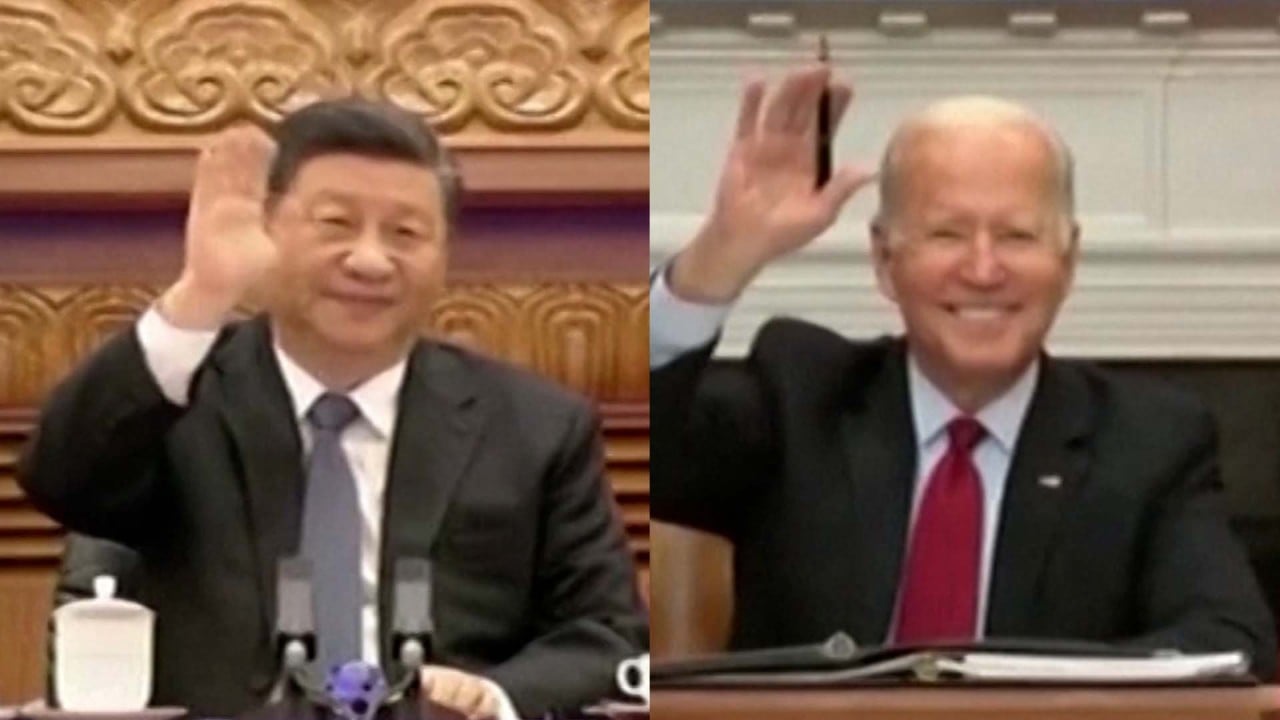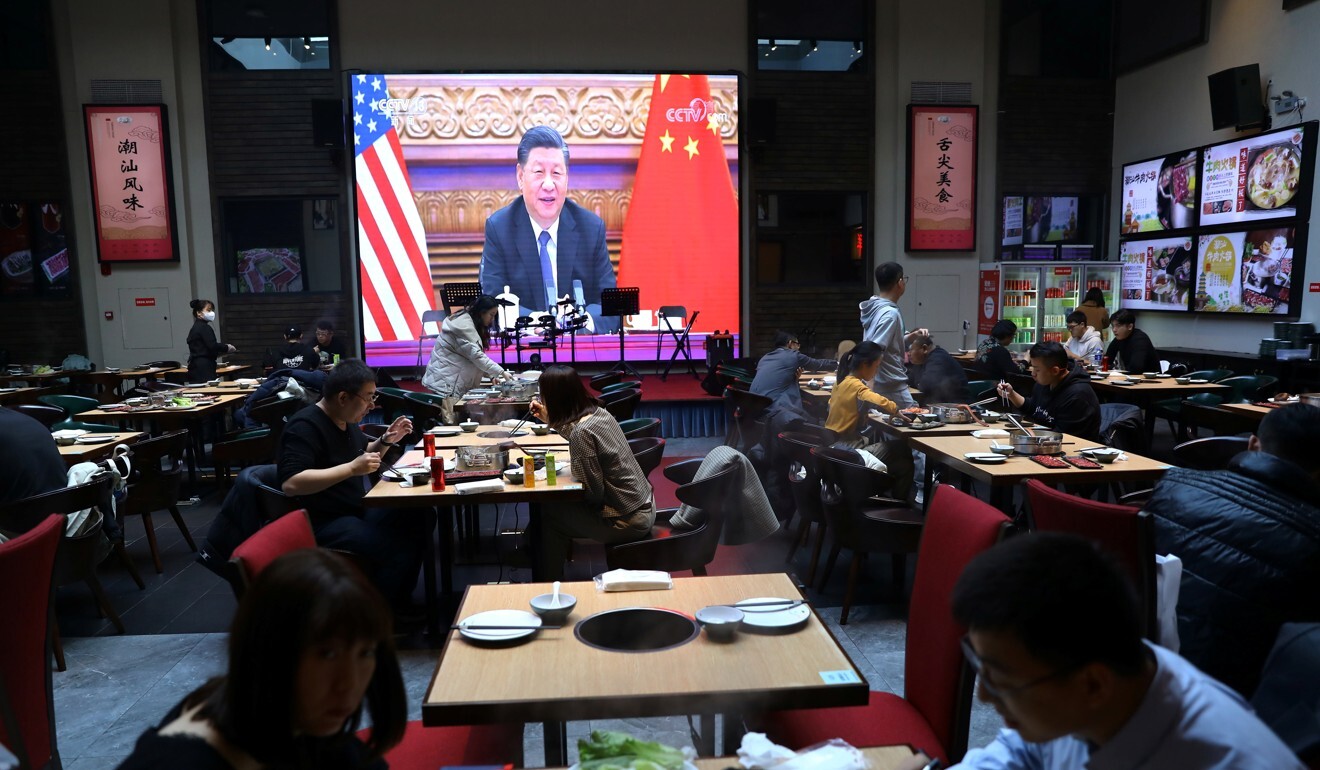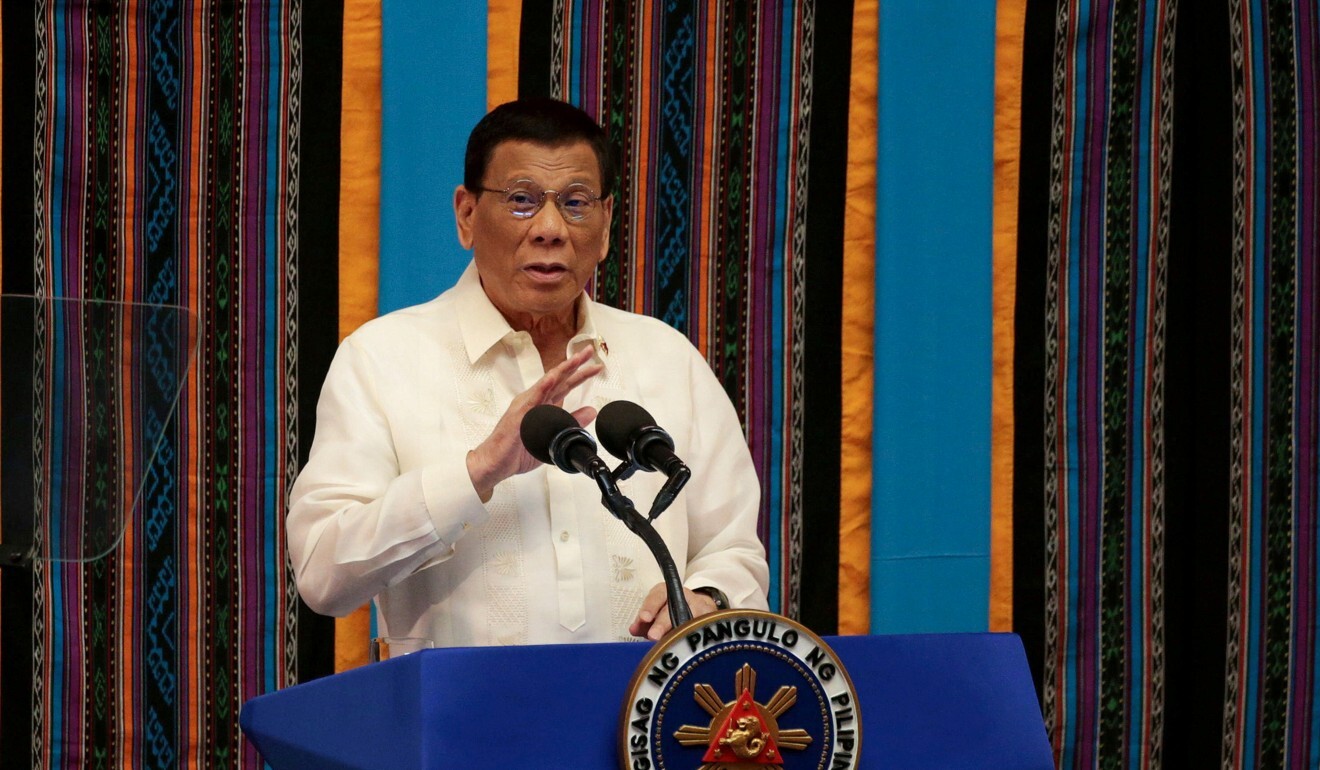
In denying ‘old friend’ Xi Jinping, did US President Joe Biden prioritise politics over regard for Asian, Chinese culture?
- When the Chinese president called his American counterpart ‘lao peng you’, the White House stressed the pair were no backslapping buddies
- The frosty response was shaped by domestic politics but across Asia, terms of familiarity are common social lubricants
Biden responded with a “thank you” but did not respond in kind. Earlier this year, asked by a reporter if he would consider Xi an “old friend”, Biden, 78, said both knew each other well but weren’t “old friends”.
“It’s just pure business,” he said.
The White House was keen to stress that message after the meeting. Deputy press secretary Andrew Bates was asked by a reporter if the greeting showed that “Xi was trying to in some way undermine the United States”. He replied that he could not speak for Xi’s intentions but while the two leaders were “able to have candid discussions [and] be direct with each other”, Biden did “not consider Xi an old friend”.
Analysts said that Washington’s aversion to the idea that both leaders saw each other as “old friends” stemmed from fractious bilateral ties and the bipartisan consensus within the US to counter China’s rise.
In China, however, the term “old friend” is usually used to describe someone who has long years of interactions with the country, or both, and is meant to facilitate positive sentiments and exchanges. It’s the same across Asia, when terms of familiarity are frequently used but mostly as a social lubricant to convey goodwill and forge better interpersonal ties.
Xi-Biden summit a good start, but US-China ties remain in on-off cycle
Said Jecon Dreisbach, a PhD candidate in humanities and communication at the Open University of Catalonia: “I do not think that the Biden administration interpreted the statement of President Xi from a cultural standpoint.
“He [Xi] may have phrased it that way to create a sense of connectedness and relationship, but primarily for diplomatic reasons,” Dreisbach said.
“It is just that the Biden administration is resolute with its position that China is a threat to the United States’ global influence.”
Adam Ni, editor of China Neican, an online newsletter on Chinese current affairs, said that in Chinese Communist Party historiography, “lao peng you” was used to categorise individuals whom the communists could trust or at least work with.
“It’s a bit of a loaded term,” Ni said.

02:25
Xi Jinping and Joe Biden call for mutual respect and peaceful China-US coexistence
The phrase is not purely an emotional connection or a form of friendship for friendship’s sake, but is also aimed at creating an emotional affinity and obligations, he added.
“So if you are a ‘lao peng you’, and if I ask you for certain favours, then it’s reasonable that you comply.”
Being an ‘old friend’ in China
In China, “friends of the Chinese people” (zhong guo ren min de lao peng you) have been described by Fang Kecheng, an assistant journalism professor at the Chinese University of Hong Kong as a group of foreigners whom the Chinese have never met.
“But once their names are mentioned, almost every Chinese will be automatically conditioned to label them as ‘old friends of the Chinese people’,” wrote Fang in 2013 in the Guangzhou-based newspaper Southern Weekly.
These include Edgar Snow, an American journalist who had interviewed China’s founding father Mao Zedong and written about the Chinese Communist movement, and the ex-Cambodian king Norodom Sihanouk.
Veteran US diplomat Henry Kissinger and former IOC president Juan Antonio Samaranch, who was widely appreciated in China for awarding the 2008 Olympics to Beijing, are among other notable mentions.
Beware Putin amid US-China rivalry, Hillary Clinton warns Singapore forum
In 2011, the Global Times reported that then premier Wen Jiabao called the ex-British deputy prime minister John Prescott and former foreign secretary Geoffrey Howe, “Chinese people’s old friends.”
The nationalistic tabloid said that “to be called a Chinese people’s ‘lao peng you’ is something that is not easily earned, nor is it offered willy-nilly. To become a ‘friend’ a foreigner must give their heart to the country and understand China’s soul.”
It added that one of the most well-known “old friends” is the Canadian surgeon Norman Bethune, more commonly known in China as Bai Qiu’en. Bethune, who worked as a battlefield surgeon during China’s war against the Japanese invasion, died of blood poisoning after cutting his finger during surgery in 1939.
Fang, the author of the Old Friends of the Chinese People, told This Week in Asia that in China, calling someone an “old friend” is mainly for political reasons.
I do not think we should interpret more than that, certainly not about cultural differences between East and West
Snow, who in 1937 wrote Red Star Over China, an account of the Chinese Communist Party when it was still a guerilla army and unfamiliar to Westerners, was an “old friend” as he was sympathetic towards the party, Fang noted.
Political leaders in the Third World with whom Mao sought to form alliances were also “old friends” as they had helped promote bilateral relations with China, Fang said.
‘Old friend’ in Biden’s context
Fang said though Americans may also frequently use terms like “my friend” or “buddy”, “the major difference between Xi and Biden is that the latter faces much more domestic political pressure, so he has to distance himself from this phrase”.
“However, Xi can control domestic media and public opinion, so he can call Biden an old friend, or enemy, or whatever else,” he added.
Yingyi Ma, associate professor of sociology and director of Asian/Asian-American studies at Syracuse University, said that Xi used the expression lao peng you “as a social lubricant to acknowledge his past connection and shared experience with Biden [and] to open for a polite hours-long meeting ahead.”
Biden recalls telling China’s Xi Jinping the US is about ‘possibilities’
“I do not think we should interpret more than that, certainly not about cultural differences between East and West,” said Ma.
Biden travelled to China in 2001 as chairman of the Senate Foreign Relations Committee and, when he was vice-president in 2011, went to Chengdu and locations near the southwestern Chinese city in 2011 with Xi who was also vice-president then.
According to Nantana Nantavaropas, an associate professor and dean of political communications college at Bangkok’s Krirk University, Xi opted for the phrase to start off in a less confrontational way.
“[However], Biden wanted to distance himself from this term which he saw as too personal. This might relate to his son Hunter’s investment in China, so Biden felt it was necessary to resist the term,” Nantavaropas said.

Last December, Biden pledged that members of his family would not hold any business role that conflicts with “or appears to be in conflict” with his job as president. But weeks later the White House said that the leader’s son was still working to “unwind” his Chinese holdings.
Hunter Biden reportedly still owns a 10 per cent stake in the Chinese investment firm BHR Partners that is controlled by state-owned entities.
In the Asian context
Such social lubricants to acknowledge past connections and find common ground are also frequently used throughout the region including in East and Southeast Asia.
In South Korea, where hierarchy is an important part of social interaction, individuals commonly refer to their seniors in school or at the workplace as “sonbae”, or “senior”.
But terms like “oppa [older brother]” and “unnie [older sister]” are also widely used by women talking to an older male or female even if they are not related by blood.
Singapore PM warns of US-China ‘mishap’ over Taiwan
Elsewhere, many pronouns used in the Vietnamese language may make it seem that everyone comes from the same family, but that is not necessarily the case.
For example, the pronoun used for a younger sister [em] is the same word used to point to a younger person that an individual is conversing with.
According to Saranukromthai, a Thai-language youth encyclopaedia website, it is common in the kingdom to call those outside one’s immediate family “brothers”, “sisters” or “uncles” to stimulate social exchanges.

“Over the years, I realised that while these familial ways of referring to each other did create a certain sense of intimacy and responsibility,” Streckfuss said.
He added that the custom was also part of a hierarchical ordering of society that distinguished common people from the powerful ones at the top.
“In Cebuano, some call young girls ‘inday’ – loosely translated as ‘a lovely daughter’. In Ilocano, they call elder men ‘manong’,” Catalonia University’s Dreisbach said.
Is Duterte’s cocaine claim sign of deeper feud with Marcos family?
He explained that having this connectedness from the terms also develops trust that has helped Philippine politicians reach out to voters.
Xi did not mean to be familiar or to suggest he was a backslapping buddy of Biden’s. It was simply a less formal way to engage with [Biden] which is how it is across Asia.
In most parts of India, many familial terms are also used to facilitate social interactions, where the mention of a person’s name, even when it is known, is usually avoided.
For instance, when stopping on the road and calling out to someone to ask for directions, Indians do not say “excuse me” which is thought of as too distanced. They say “bhaiya” or brother.
In cases when names are used, the suffix “ji” will be added to the name to denote respect.
Also, if a young man addresses a woman he does not know, he will either use “didi” [sister] if the person is not much older, or auntie or mataji [mother] if she is older.
Understanding the nuance
While Xi’s reference to “old friends” may have prompted discussions about the political connotations behind it, analysts like Parsa Venkateshwar Rao Jnr argued that it is a sign that Westerners do not necessarily understand Asia’s complexities.
“Westerners fail to understand the nuances of Asian culture,” the Indian author said.
“President Xi did not mean to be familiar or to suggest he was a backslapping buddy of Biden’s. It was simply a less formal way to engage with him which is how it is across Asia.”

However, others maintained that the political undercurrent should not be missed.
China Neican’s Ni said that by alluding to the “personal emotional acquaintance” between the two leaders, Xi was also trying to appeal to certain parts of the American elite.
“[Xi] is basically saying that at some point in the past we have worked together, we have had a certain degree of trust, and we’ve known each other and we’ve done business,” Ni said.
He added that Xi was suggesting that a different type of Sino-US relations – other than the current confrontation and tensions – was possible.
But Audrye Wong, an assistant political science and international relations professor at the University of Southern California, said Xi was seeking to portray an image of China as the good guy extending a hand of friendship.
“So that the Chinese government can claim the high ground and later criticise the US for failing to reciprocate and creating tensions in the bilateral relationship,” Wong said.
Additional reporting by Jitsiree Thongnoi, Amrit Dhillon and Geela Garcia

